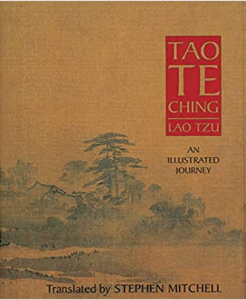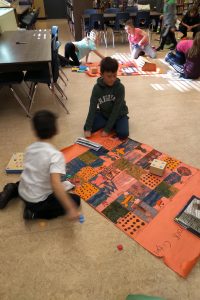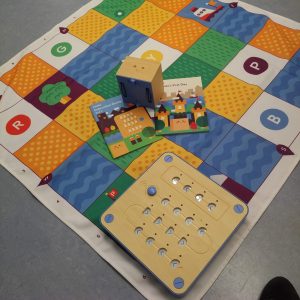
I have been doing a lot of thinking about the concept of leadership and its connection to the topic at hand, that being, meeting the ICT needs of the school community. While researching, I went to my “strength and stays”: my PLN of social media bloggers, tweeters, Instagram, Facebook, and academic articles. I came across this gem of a poster from the “Future Ready Librarians” Facebook account that I follow titled, “10 Reasons Librarians Are More Important than Ever” (Merritt, 2023).

I love this infographic because it is a visual reminder to me of what makes Teacher-Librarians, and Librarians in general, unique. We offer specialized training in information and technology that cannot be attained just be “Googling” something. Face it, I could write a blog post on each one of these reasons. For today’s post, I’ll focus on number 1: “librarians know technology”.
I found many great ideas for topics to use with my staff, no doubt, but what was missing for me was approach, and approach is essential to be effective. Having taught for 26 years I can state confidently that my colleagues do not accept openly what they feel is imposed upon them.
Intrinsically, educators are lifelong learners, and they want to be inspired and feel safe and respected to try new things with their students. It makes sense to have the Teacher-Librarian use their skill set to lead professional development for staff. According to the ISTE Standards, under the category, “Empowered Professional – Section 2: Leader”, it states that,
Educators seek out opportunities for leadership to support student empowerment and success and to improve teaching and learning. Educators:
- a) Shape, advance & accelerate a shared vision for empowered learning with technology by engaging with education stakeholders.
- b) Advocate for equitable access to educational technology, digital content and learning opportunities to meet the diverse needs of all students.
- c) Model for colleagues the identification, exploration, evaluation, curation and adoption of new digital resources and tools for learning. (Bass, 2019)
Yes, to all the above, but a tall order, and how to align with these standards of practice without coming across as mandating how things will be… that can get tricky.
This led me to my personal library shelf, and the philosophical book, Tao Te Ching  written by Lao Tzu well over 2500 years ago.
written by Lao Tzu well over 2500 years ago.

Tzu left us with many gems of wisdom, but what I found interesting was his thoughts on leadership, mostly to do with governing people, but it applies in any leadership role. He never believed in force as he found it ineffective. He believed that the most effective means for change and growth was in softness, silence, listening, and leading by example.
Verse 17 states, “The Master doesn’t talk, he acts. When his work is done, the people say, ‘Amazing: we did it, all by ourselves!’”, and verse 36 continues with, “The soft overcomes the hard. The slow overcomes the fast. Let your workings remain a mystery. Just show people the results” (Tzu, 2013). Pondering these ideals, I wondered how can I put them into action as a TL and support school community stakeholders regarding ICT professional development?

To find ideas to deliver to staff for pro-d the most effective tool is to look at the school goals and ask school staff what areas they’d like to focus on for the year, and what curiosities they have in how ICT can help them and their students to meet those goals. Sending out a quick online survey to staff can be a simple method for staff to list their thoughts. For example, how would staff like to incorporate more ICT into their curriculum. Then, use the responses to create a lunch and learn workshop, or possibly a half-day school based professional development day.

I find, it helps to see what teachers are doing with their students. That worked for a Teacher-Librarian in the United States who early in her role as TL, noticed that one of the teachers was using Chrome books for a research project. A teacher of a grade one class wanted help with her students to create their first book reports, and this TL decided to incorporate the use of the Chrome books. She had the students record their book reviews as videos. The TL then uploaded these recorded book reviews to the library OPAC for their peers to view (Patrick Lo, 2018). Genuis!!! This is just one of many ways to find ideas that are relevant and meaningful to staff and will remove any possible misinterpretations of intent.
Lead from Behind …

Lastly, to follow through on the philosophy of Lao Tzu, if you want to see change, you must lead by example. Working with students in the library and incorporating various forms of technology with curriculum, and then speaking to the successes in a staff meeting may inspire others to want to learn how they can use technology differently.
One project I am proud of was using the coding device Cubetto with my grade 2/3 students a few years ago to tell a story and send Cubetto on an adventure somewhere in the world. They had to develop a simple story for Cubetto, and then storyboard the narrative. A grid for Cubetto to follow was then created. Next, I had each group present their story with Cubetto to another class and the students of that class had to program Cubetto to follow the directions in the story to reach the destination. It was a huge success, and many teachers from different schools wanted to incorporate this method of story development and ADST into their programs. Check out the pictures below.




It’s inspiring to be a Teacher-Librarian and have the opportunity to have a dynamic impact on a school community’s growth and development.
Until next time…
Works Cited
Bass, S. M. (2019). Leading from the Library: Help Your School Community Thrive in the Digital Age. Portland: International Society for Technology in Education.
Merritt, D. M. (2023, May 31). 10 Reasons Librarians are more important than ever. Retrieved June 1, 2023, from https://www.facebook.com/photo/?fbid=10225798710252097&set=g.573023046218945
Patrick Lo, H. R. (2018). Effective School LIbrarianship (Vol. One). Oakville, Ontario, Canada: Apple Academic Press, Inc.
Tzu, L. (2013). Tao Te Ching: An Illustrated Journey. (S. Mitchell, Trans.) London: Frances Lincoln Ltd.

Linette,
You blog post has so many ideas I have been inspired by! I love the “10 Reasons Librarians are more important than ever” infographic. I’m a sucker for infographics, and will add this one to the repertoire! I also love your connection of coding, ADST, and story through your Cubetto project. Thank you for sharing that & …can I steal your idea, please? We have Dash robots at our school, and it would be amazing to have students write an adventure story for Dash to travel as they code his journey.
So true that leading by example, asking questions, and listening are powerful ways to invite and support change!
Looking forward to your next post!
Lana.
Hi Lana,
Feel free to use what inspires you. What a great idea to send Dash on his own adventure.
You provide some strong ideas and strategies to support other teachers here. I appreciate your thoughts on the “how” being as just as important as the “what”. I also appreciate the specific examples (Cubetto) from your personal context.
Thanks for reminding us (me!) the importance of asking teachers what they would like to collaborate on. I often ask teachers about what they’re teaching and how we can tie ADST projects into curriculum but maybe teachers have other ideas of what they would like to learn or collaborate on.
Hi Linette,
Your exploration of leadership in the context of meeting the ICT needs of the school community is thought-provoking. It’s important to recognize the unique expertise of Teacher-Librarians and the specialized training they offer in information and technology. Sharing success stories, such as your experience with Cubetto and the integration of technology into storytelling is inspiring in exploring new possibilities. The world of technology definitely has a lot to offer.
Linette,
This is a great post and I love the ideas you’ve shared for working with teachers, both your personal experiences and ones that you’ve seen others use as well.
Our blogs on this topic overall share a lot of the same ideas, as I also feel that the approach we take in introducing things to staff can be the make it or break it. Realizing that we are going to need to take on a lot of the workload in the beginnings of collaborations and starting with a few interested staff can be less overwhelming for everyone involved.
Your cubetto project is very cool, and I have to admit that I’d never heard of cubetto before reading your blog post here. I love that it is coding that looks super accessible to younger kids (of course the product does say for ages 3-9, so that makes sense!). What a neat idea. I’m wondering with your project being such a success if you’ve been able to have the district fund a few cubettos for your school (I noticed that they’re, understandably, not a cheap buy)? Or is one set working for your school with a sign up schedule? Either way, very, very cool! Thank you for sharing :).
Hi Chelsey. My district has funded the purchase of class sets of laptops and spheres which is great, but not Cubetto. The library uses its funds to purchase one per year. Wish it could be more.